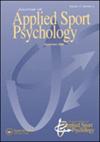Athlete leader development: The perspectives of athlete leaders, teammates, and coaches
IF 3.2
2区 心理学
Q2 HOSPITALITY, LEISURE, SPORT & TOURISM
引用次数: 0
Abstract
Abstract The development of athlete leaders is a multifaceted process. In this study, the experiences of athlete leader development were explored using a multi-perspectival, interpretative phenomenological analysis. Two basketball teams and one soccer team participated in this study. The players on each team identified their leaders using a questionnaire, and these identified leaders (n = 10), their teammates (n = 6), and their head coaches (n = 3) participated in semi-structured interviews, after which an iterative and inductive approach was taken to analyze the data. Results were organized into two general categories: (a) elements involved in the process of athlete leader development, and (b) leadership skills to be developed in athlete leaders. Findings showed that experiencing challenges, such as playing in different levels, positions, and roles, and making decisions on one’s own facilitates athlete leader development. Additionally, an environment that provides the opportunities for feedback and support from others, and individual factors such as competitive skills, the ability to manage emotions, and diligence emerged as elements that assist athletes to develop into leaders. Interpersonal, team management, and visioning skills were further identified as leadership skills that need to be developed for effective athlete leaders. The results inform athlete leader development theory and suggest that athletes require certain experiences to develop as leaders; with consideration of individual differences, the systematic provision of such experiences could facilitate this development. Lay summary: In this study, the development of athlete leaders is examined through the lenses of athlete leaders, their coaches, and their teammates. The findings show that athletes need certain challenges to develop as leaders. Additionally, they need an environment that provides them with quality support and feedback. Implications for practice Athletes need to be challenged and provided with feedback and support to develop as leaders. Coaches need to provide athletes with an environment that focuses on growth and personal development, where all athletes have the opportunities to assume leadership roles, and where appropriate role models are present. Strategies to develop leaders should include athlete leadership skills training that focuses on interpersonal, team management, and visioning skills.运动员领袖发展:运动员领袖、队友和教练的观点
运动员领导者的培养是一个多方面的过程。本研究采用多视角、解释性现象学分析探讨运动员领导发展的经验。两支篮球队和一支足球队参加了这项研究。每支球队的球员使用问卷来确定他们的领导者,这些确定的领导者(n = 10),他们的队友(n = 6)和他们的主教练(n = 3)参加了半结构化访谈,之后采用迭代和归纳的方法来分析数据。结果分为两大类:(a)运动员领导者发展过程中涉及的因素;(b)运动员领导者需要发展的领导技能。研究结果表明,经历挑战,比如在不同的水平、位置和角色上打球,以及自己做决定,有助于运动员领导者的发展。此外,为他人提供反馈和支持机会的环境,以及竞争技能、管理情绪的能力和勤奋等个人因素,都是帮助运动员发展成为领导者的因素。人际关系、团队管理和愿景技能进一步被确定为有效的运动员领导者需要发展的领导技能。研究结果为运动员领导者发展理论提供了理论依据,表明运动员需要一定的经历才能发展成为领导者;在考虑到个人差异的情况下,系统地提供这种经验可以促进这种发展。Lay summary:在这项研究中,运动员领导者的发展是通过运动员领导者、他们的教练和他们的队友的镜头来检查的。研究结果表明,运动员需要一定的挑战才能发展成为领导者。此外,他们需要一个能够为他们提供高质量支持和反馈的环境。运动员需要接受挑战,并获得反馈和支持,以发展成为领导者。教练需要为运动员提供一个注重成长和个人发展的环境,在这个环境中,所有的运动员都有机会担任领导角色,并且有合适的榜样。培养领导者的策略应该包括运动员领导技能的培训,重点是人际关系、团队管理和愿景技能。
本文章由计算机程序翻译,如有差异,请以英文原文为准。
求助全文
约1分钟内获得全文
求助全文
来源期刊
CiteScore
6.90
自引率
9.40%
发文量
39
审稿时长
>12 weeks
期刊介绍:
The Journal of Applied Sport Psychology (JASP) is a refereed journal designed to significantly advance thought, theory, and research on applied aspects of sport and exercise psychology. Submissions such as experimental studies, qualitative research, correlational studies, case studies, position papers, critical reviews, theoretical developments specific to applied research conducted in sport and/or exercise settings, or having significant applied implications to sport and exercise, are appropriate content for the JASP. Please see the recent Editorial for further details on the aims and scope of the journal. JASP is a non-proprietary journal that is an official publication of the Association for Applied Sport Psychology (AASP). The purpose of AASP is to promote the development of psychological theory, research, and intervention strategies in sport and exercise psychology. The Journal is a direct benefit of membership in AASP and is received by its student and professional members. The publisher of the JASP is Taylor and Francis, Inc. of Philadelphia, PA.

 求助内容:
求助内容: 应助结果提醒方式:
应助结果提醒方式:


